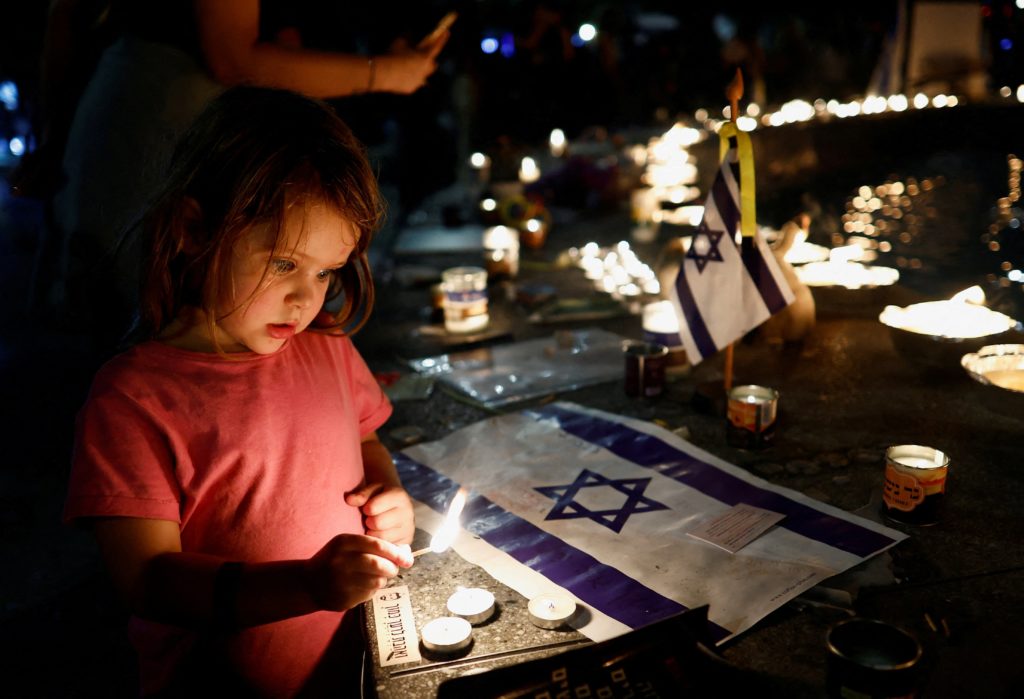It seems a bitter irony that during this season of angelic proclamations of “peace on earth and goodwill to men,” we seem so terribly far from that sentiment. War and rumors of war fill the air, and there are no good stories and no happy endings in sight.
Ukraine is about to complete the second year of its desperate resistance to the Russian invasion. Not only is it locked in a bloody stalemate with a remorseless and cruel opponent, but it must also worry if its allies are growing weary of the fight. One marvels at how soon America forgets what happens when one seeks to appease and excuse dictators bent on conquest. But then, history has never been our strong suit.
The bloody war in Eastern Europe has resulted in hundreds of thousands of casualties. Many thousands of children have been kidnapped by Russian troops. Civilians and civilian infrastructure have been targeted for bombardment and cities obliterated. Thousands of cases of war crimes allegedly committed by Russian troops are being documented. The Ukrainian Greek Catholic Church is now being banned in the region held by Russia, as are the Knights of Columbus and the Catholic aid organization Caritas, a foretaste of what the future will look like for Ukraine’s Catholics should Russia triumph.
Yet U.S. politicians procrastinate on providing further aid for Ukraine, while the West is distracted by the horrors of October 7 and its aftermath.
The slaughter of Israeli citizens that dark day reveals an evil intentionally unleashed upon the land. The assault by Hamas seems horrifyingly personal in its cruelty, slaughtering parents before their children’s eyes and raping women. The attackers carried phrase books that told them how to pronounce phrases like “take off your pants” in Hebrew.
Yet the Israeli counterattack on Gaza and the skyrocketing numbers of civilian dead have muted international support for Israel as they exact a brutal revenge on the cities hiding Hamas’ soldiers. The reprisal seems as impersonal in its administration as the Oct. 7 attack was personal. Whole neighborhoods have been leveled like wheat before a thresher. Multiple generations of entire families wiped out from thousands of feet above.
“They say that we are living in the Holy Land but instead it feels like we are living in the land of hatred and violence,” a butcher in Ramallah told The New York Times.
In both conflicts, Pope Francis has called for peace and sought to remind the world of the innocent lives at stake. “Let us think about and pray for populations suffering from war,” he said at one audience. “Do not forget the tormented Ukraine and think of the Palestinian and Israeli people. May the Lord bring about a just peace.”
Then he added: “They are suffering so much,” he said. “Children are suffering. The sick are suffering. The elderly suffer. And many young people are dying. War is always a defeat.”
War is always a defeat. Cardinal Pierbattista Pizzaballa, the Latin patriarch of Jerusalem, bemoans the consequences of this truth.
In speaking about the Israeli-Hamas conflict, the cardinal said, “The war will end sooner or later, but the consequences of this war will be terrible. You see, there are two issues that seem particularly worrisome to me. The first is that both sides seem to lack a strategic vision that goes beyond the annihilation of the other. … There is no exit strategy.”
The second issue, he said, is the difficulty Israelis and Palestinians have of “distancing themselves, even emotionally, from the heavy past of both peoples, the Holocaust and the ‘Nakba,’ which was evoked on Oct. 7,” when Hamas militants entered Israel and went on their killing and kidnapping rampage. “Nakba” refers to the mass displacement of Palestinians during the 1948 Arab-Israeli war.
The same holds true in Eastern Europe. Russia is hypnotized by the dream of restoring a lost empire, looking not just to Ukraine but also the Baltic States and more. Ukraine cannot forget its past, the 1932-33 genocide known as the “Holodomor,” when millions of Ukrainians were starved to death by Stalin’s regime. Like an unstaunched artery, the past bleeds out on the shattered battlefields of Eastern Ukraine.
How does one make peace when no one wants peace right now? We are imprisoned by the crimes of history, and with each turn of history’s grim wheel, humanity relives its horrors again.
A famous icon sets the Nativity in a cave beneath Golgotha’s hill. The Child’s shelter becomes the Man’s tomb. This Christmas, the innocent joy in the baby Jesus’ birth is necessarily set against the horror of Good Friday. For so many of us, we are left only with prayer and the desperate trust that death has been defeated. The Savior has triumphed. Yet how long must we wait for the promise of peace on earth to be fulfilled?

